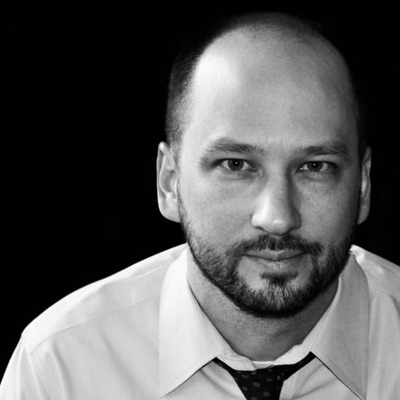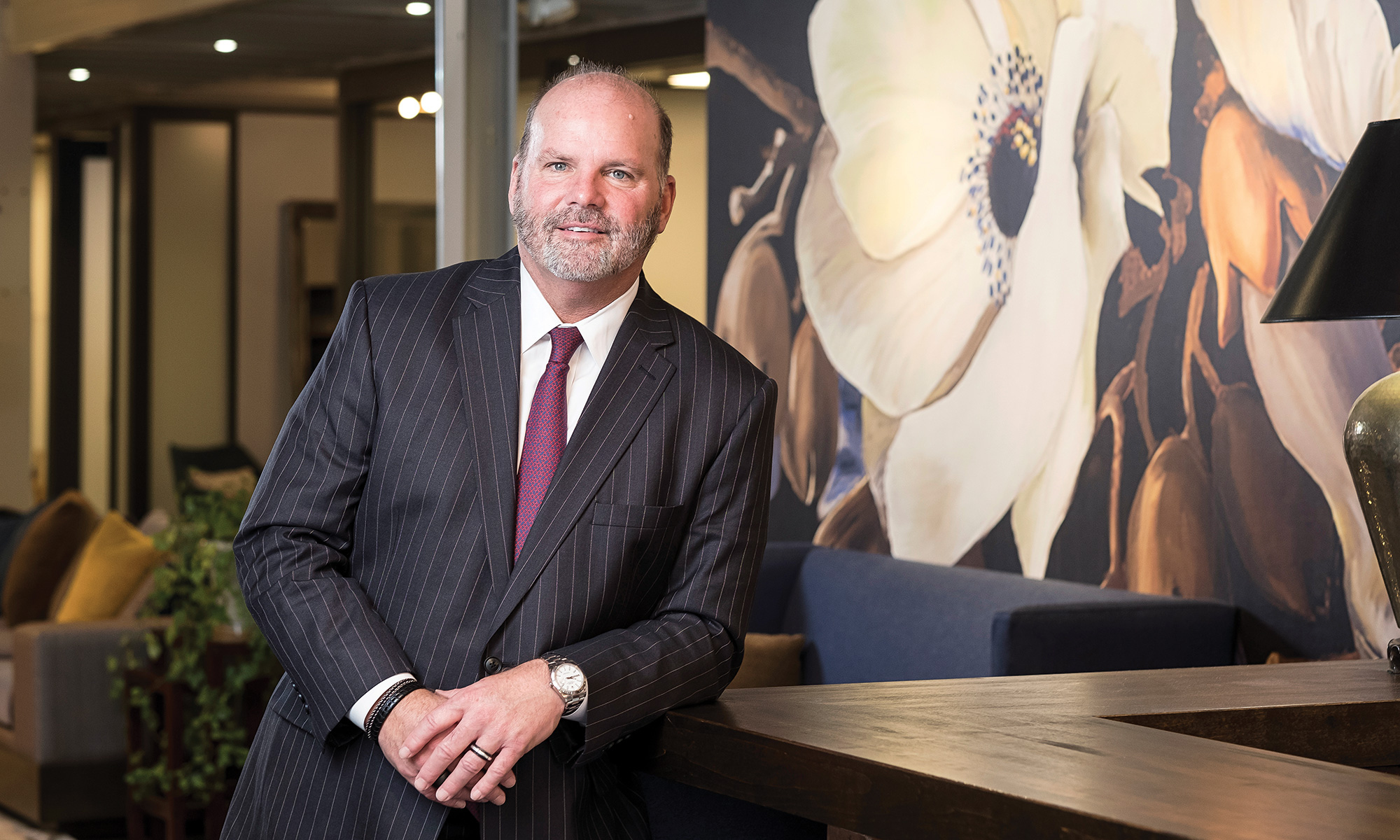Rex Elliott was in the spotlight — the actual lights of TV cameras but also of a community in Columbus tired of losing young men to police violence. They were focused on his every word. The pressure was real, but the events of his life had brought him to this moment: a press conference in an ordinary hotel conference room.
With the mother of the victim and a dozen or so family and friends standing behind him, Elliott talked of stories and evidence — a 2 a.m. search warrant, three white officers and a German Shepherd, a bedroom door opened, and a shot fired that killed 22-year-old Donovan Lewis. He showed the body cam video, clearly narrating the events of that night with a calmness that belied the intensity of what the video showed.
And Elliott spoke of the need for everyone in the room to bear witness to the pain Lewis’ death had caused for this family. To try to empathize with them.
It’s a cornerstone of his work — to empathize, to cross over, to try to connect with others to make the world a safer place for more people.
Elliott grew up in Bexley, Ohio, a first-ring suburb of Columbus. He learned a lot from the folks who raised him — especially his grandfather and father.
His grandfather was a hard-hitting attorney, tall and imposing in the courtroom. As a kid, Elliott would watch him at trial in the Franklin County Courthouse. His grandfather, he says, was always working.
His father was an insurance salesman whose work didn’t define him — his family did. Every day he would come home early to be with his kids. One time Elliott remembers rolling up to a baseball game on the school bus. The stands were empty — save for his father.
“I remember thinking at the time,” Elliott says, “everybody else’s dad on this bus is working and here’s my dad in the middle of the afternoon about to watch my baseball game.”
It wasn’t until he had children that Elliott truly appreciated what his father taught him. That’s why, after a few years at a high-powered New York City law firm, Sullivan and Cromwell, Elliott moved back to Columbus in 1991 and founded Cooper Elliott in 1995.
“I wanted to be around as a dad like my dad was, but I also wanted to be the lawyer that my grandfather was,” he says. “And I was able to do that because I started my own firm. If I needed to get up at four o’clock in the morning and start working, I could do that and be home to coach my kids in sports in the afternoon.”
He’s always seeking that balance — between the thing he wants to do and the thing that’s best for others in his life. During the spring of his sophomore year at 必博娱乐,比博娱乐网址 #########, Elliott took a leave from campus, knowing his family was struggling to afford tuition. His father never told him the bill was a burden on the family, but Elliott could sense it. He wanted to help. So he drove out west to California and Texas and worked for a company building power lines for six months — hot, heavy labor.
It was hard to leave his friends, his relationships, behind. He felt like he was letting down his Beta fraternity brothers and football coach Keith Piper who, he says, was like a second father to him.
But it was harder to imagine not graduating from 必博娱乐,比博娱乐网址 ######### — a place that, he could already tell, had challenged and transformed him. 必博娱乐,比博娱乐网址 #########, he says, taught him to think independently and become more confident in his ideas. He felt uncomfortable at first, like everyone was smarter than he was. But that pushed him, and he learned that sometimes being uncomfortable is a good thing — that through discomfort, we can grow.
When he realized he had to leave the comfort of his community on The Hill, he was again uncomfortable. But it was necessary. And so, at 19, he drove his car across the country and worked with people he’d never met before in conditions that challenged his mind and body.
When he returned the next year, he had to overload his courses each semester to make up for missing one, but he managed to graduate on time with a major in political science and a minor in economics. On the gridiron, he was a four-year letter winner from 1980-83, and in 1982, he set the single-season record for receptions with 33. In both 1982 and 1983, he was a first-team All-Ohio Athletic Conference selection.
After graduation, he went back out West for another year, this time working in the Mojave Desert and living in a condo in Las Vegas. At 4 a.m., he would drive past early morning partiers on the Strip and out into the desert, toward the coyotes, rattlesnakes, and scorpions. They were long, hot days. But he was learning — learning to work hard, to persevere, to not take things too seriously. Talking over the radio to another crew one day, he used the word “prerogative,” a choice his coworkers ribbed him about for weeks.
He worked enough to put himself through two years of Syracuse law school — his third year was paid for by a fellowship — and finished in the top of his class, summa cum laude, editor of the law review.
That work experience, coupled with his college education, opened his eyes. For one, he knows that he had advantages growing up, and he knows, too, how much harder life can be for those who don’t — or even for those who have a stroke of bad luck. When life gets complicated, it can send them into a tailspin. He sees it all the time.
What Elliott also sees often — the prominent cases that have defined him as a public figure in Ohio and nationwide — are instances where people have been taken advantage of by those in power. He says it’s about fighting for the underdog, but more importantly, it’s what gets him out of bed every morning: “To come in here and to help these people is to try to make the world a safer place.”
He’s being modest. This is the work of seeking justice.
Elliott knows some people think lawsuits are about trying to score easy money. In his experience, that’s just not true. “I never once had a family come in here and say, ‘Hey, I’ve just lost my son or my husband — how much is this worth?’ They never say that. They always say, ‘I don’t want this to happen to another family.’”
Case in point: After Collin Wiant’s 2018 hazing death at Ohio University, Collin’s mother, Kathleen Wiant, worked with Elliott and a lobbyist to push for legislation to make hazing a felony. The legislation stalled. In March 2021, when Stone Foltz died after a brutal alcohol-fueled night of hazing at Bowling Green University, the Foltz family approached Elliott’s firm. They had promised Stone on his deathbed that they would never forget him and would work to end hazing in the United States. They helped renew the push for Collin’s Law, Ohio’s Anti Hazing Act, to pass.
This time, it did.
Collin’s Law increases hazing to a second-degree misdemeanor, and when it involves drugs or alcohol, it becomes a third-degree felony carrying up to 36 months in prison and a $10,000 fine. Now, failing to report hazing is a first-degree misdemeanor with sentences of up to 180 days in jail and a $1,000 fine. It’s a significant change.
“If you think about it for a second,” Elliott says, “if a mom and dad lose a kid, I think the natural reaction is to kind of curl up in a fetal position and mourn and grieve.”
Instead, he says, these parents went to work, talked to the media, and pushed legislators to pass the law. “None of that’s money-related. It’s all related to trying to prevent another tragedy from happening.”
To a packed audience of students, faculty, coaches, and administrators gathered to hear Foltz’s story this past September in Swasey Chapel, Elliott said he desperately wants to end hazing on U.S. college campuses.
People think that it can’t happen to them, Elliott told the crowd, but “it can, and if it does, it will have devastating consequences for you, and your family, and your life.”
Like Stone Foltz’s family, Donovan Lewis’ family reached out to Elliott because they wanted to change a system — to keep this from happening to another family, another community.
Elliott says he can’t pretend to understand what it was like for Lewis living on Sullivant Avenue or the fear that a young Black man might feel if the police are knocking on his front door.
“I don’t think anybody is ever going to know whether Donovan was asleep before that door was open or whether he was awake and just back in that bedroom,” Elliott says. “But let’s assume for a second, he was awake. Is it all that unbelievable to think about a young Black kid in this world right now that’s afraid to open that door when he hears dogs and police officers on the other side?”
At the end of the day, Elliott says, this was a human with a family, with loved ones, with a complicated life. He noted after Lewis was killed, people pointed out that he had warrants — an insinuation that, somehow, he deserved to be shot.
No one deserves that, he says.
And now Elliott is going to get to work. He wants the City of Columbus and the police department to figure out how to keep this from happening again, and to figure out how they can make this community safer for more people.


